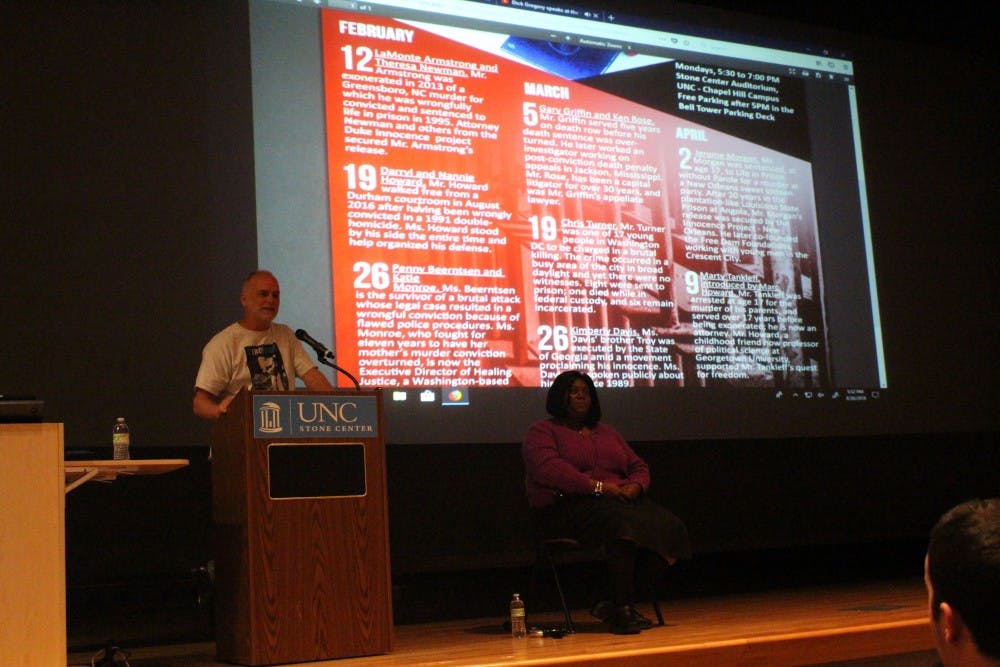Activist Kimberly Davis came to UNC's campus Monday night to speak about her family’s long struggle to prove the innocence of her brother, who was executed by the state of Georgia in 2011.
“I am the sister of Troy Davis, who was an innocent man who was executed on death row,” Kimberly Davis said.
Troy Davis was executed for the 1989 killing of police officer Mark MacPhail. Nine witnesses originally testified that Troy Davis had killed MacPhail. Later, seven of those nine witnesses recanted their statements and said that they had been coerced into saying Davis had shot MacPhail.
Much of the audience was made up of students enrolled in Frank Baumgartner's political science course, Race, Innocence and the Decline of the Death Penalty.
“Within the context of the class, this lecture offers a more individual perspective, and a very human perspective on the topics we’ve discussed in the class,” teaching assistant Kai Stern said.
Kimberly Davis described her brother as a strong Christian and caring brother and uncle, even during his 16 years on death row.
“Troy actually taught my nephew De’Juan how to play football by passing a soda bottle back and forth, and how to build airplanes by making little paper airplanes out of wrappers from Reese’s cups, right there in the visitation room in the prison,” Kimberly Davis said.
She described the web of corruption the Davis family navigated as Troy was arrested, convicted and executed.
“The justice system and the death penalty is very sporadic," said attendee Madeline Murray. "It’s a really flawed system in general, and the amount of people who have been killed compared to who have been sentenced is really low."



